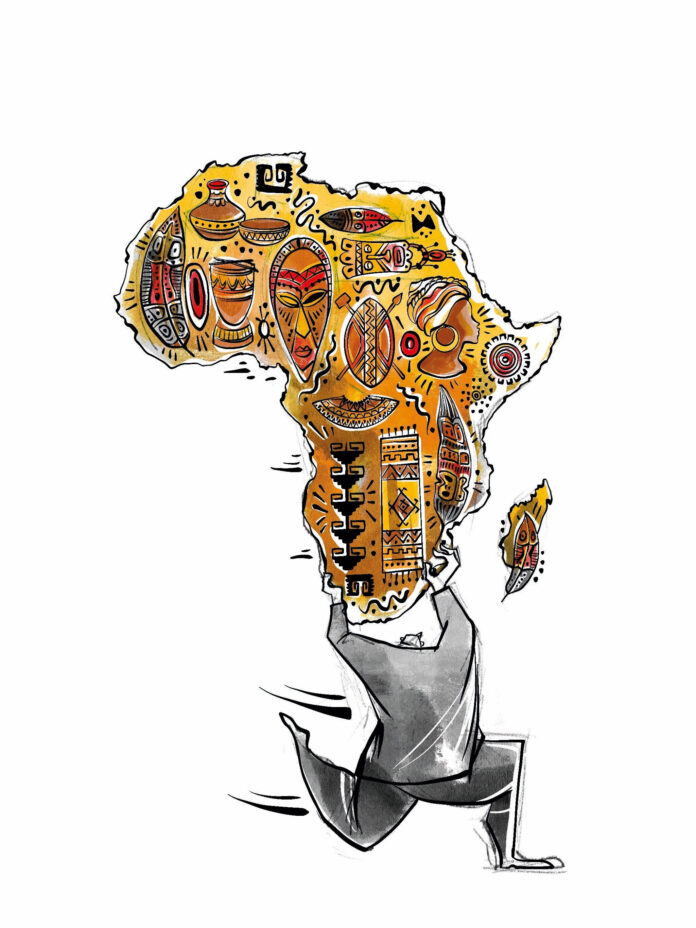Illustration: Cemile Ağaç Yıldırım
Prof . Dr. Suleyman Kiziltoprak; Mimar Sinan Fine Arts University Faculty Member
Western-based African history has often portrayed the colonial era as a civilizing movement for Africa, not destruction. Africans were no longer the subjects of a history set in their own land. Today, Africa has begun to write its own story. Western powers, who have exploited the continent for centuries, spoke on behalf of Africa. Today, Africa speaks for itself and it is time for the whole world to listen to Africa. “25 May Africa Day” is the day to express this truth.
Africa Day is a day celebrated to commemorate the Organization of African Union, which was established by the coming together of 30 independent African countries on May 25, 1963. This organization was renamed the African Union in 2002. Africa Day is an important day to commemorate the progress made by the African Union in achieving its goals, particularly in protecting the human rights and freedoms of Africans.
African history begins with human history. In the first years of Islam, Muslims stepped into Africa in 615 before migrating from Mecca to Medina to fight for freedom. The acceptance of them by Negus, King of Abyssinia, in the lands that are called Ethiopia today is very important in terms of Islamic history, African history and the history of freedom. The fact that the headquarters of the African Union is located in Addis Ababa is also meaningful in this respect.
If an evaluation is made in the context of the African Union, the fact that the Union consists of 55 independent countries today is a result of its success against the colonial powers. The Union made a significant contribution to ending the apartheid process in South Africa under the leadership of Nelson Mandela. Unfortunately, the genocide in Rwanda was not effective in preventing chaos and civil war in countries such as Libya and Somalia.
Are the Colonial Policies Finished?
The priority given to security policies by some African leaders is still top of government programs. Development policies come next, while democratic freedom and human rights come only in third place. Governments do nothing but turn a deaf ear to demands for transparency and accountability and political pluralism. Ironically, before the period of independence, which is described as the black history of the continent, the powers occupying Africa continued their colonial policies entirely with these discourses.
Africans want peace, freedom and a prosperous continent. Therefore, although the colonial period is over, Westerners in the understanding of economic and cultural colonialism still do not want to withdraw their hands from Africa. But there are remarkable developments in the awareness of African youth against them. The border between countries, etc., where the leaders strive for development, health and education moves, clan and tribal quarrels are replaced by peace and friendship relations. An Africa where disputes are resolved fairly in accordance with the principles of friendship and law, which uses its resources for its own interests, and which develops as a result, is the common desire of all peoples of the continent. In line with the realization of these desires, Africa will be freer, stronger, more prosperous and happier in the 21st century.





















